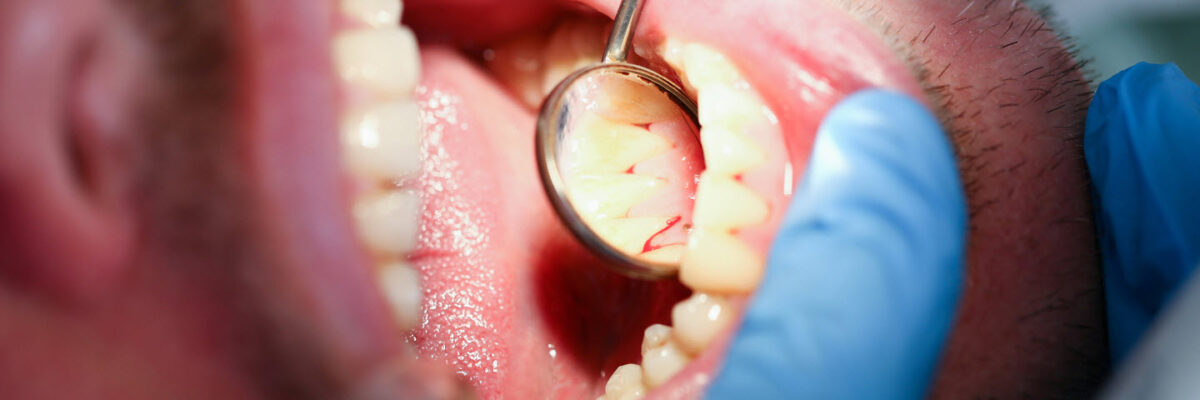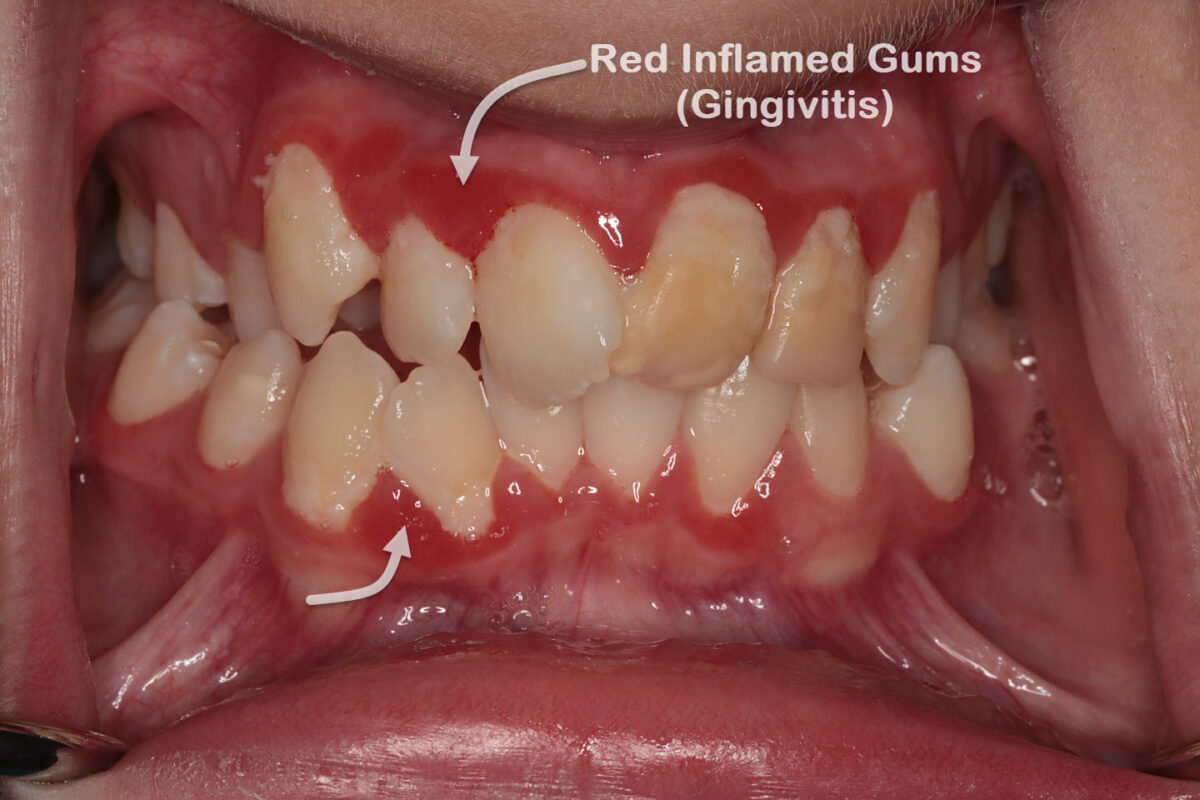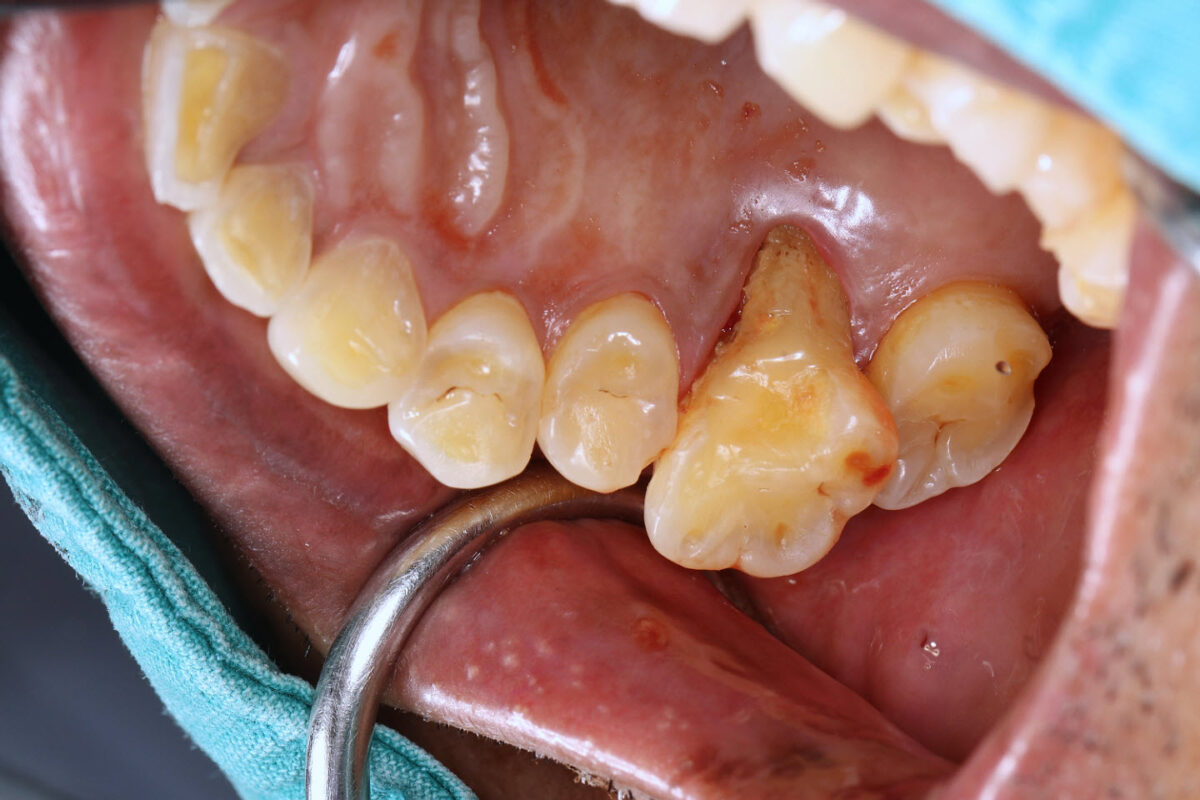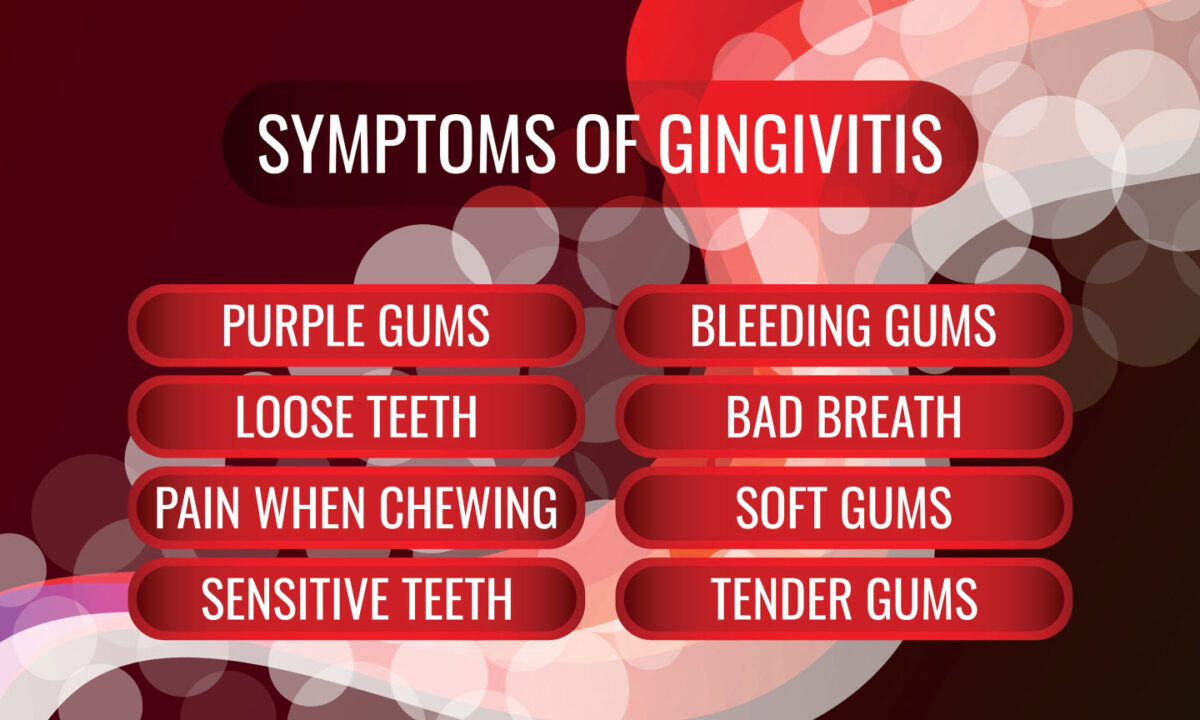Why Do My Gums Bleed When I Brush My Teeth?
Bleeding Gums
Good oral health means having healthy teeth and gums, so daily brushing and flossing teeth regularly are not just to keep our teeth bright and healthy but also to ensure our gum health.
Nobody likes to see blood on their toothbrush or while flossing, but gum bleeding is a common dental condition. No, we don’t mean that you can ignore your bleeding gums just because it’s pretty common!
Healthy gums rarely bleed, so gum bleeding may be a warning sign of poor oral hygiene, bad dental care habits, or some underlying health conditions.

Causes of bleeding gums
Bleeding gums are often linked to having gum disease, but it can result from other health issues, as well. If your gums bleed when you brush or floss teeth, you need to see a dentist near me as soon as possible to find out the underlying cause.
Periodontal disease
(Gum infection and inflammation)
Periodontal disease, more commonly referred to as gum disease, is the inflammation of gums and occur when your gums become sick because of plaque buildup at the gum line caused by inadequate plaque removal.
Plaque is a sticky film of bacteria that form on the surface of a tooth after eating, drinking, or brushing and needs to be removed twice a day to improve oral health and avoid many oral health problems, including gum disease and tooth decay.
Gum disease or periodontal disease is easily treated at its early stages called gingivitis by practising good oral hygiene. Gingivitis occurs if you don’t remove plaque regularly and let it accumulate on your tooth surfaces, causing gums to become inflamed, red, and bleed.
Your gum gets swollen, red and starts bleeding when brushing your teeth if you have gingivitis. If your gum bleeding is because of gingivitis, you can restore your gum health easily by maintaining proper oral hygiene and removing plaque regularly.
Gingivitis will progress and turn into periodontitis if left untreated.
Periodontitis is a more advanced stage of periodontal disease or gum disease. At this stage of gum disease, the infection and harmful bacteria have penetrated into deeper layers of the gum tissue due to the pockets that have been formed between the teeth and gums, causing damage to the tooth-supporting bone.
Treating gum disease is necessary otherwise, it will lead to bone loss and tooth loss.
Swollen gum tissue, receding gums, inflamed gums, bad breath, bleeding gums, or unexplained tooth loss can all be warning signs of gum disease and should not be ignored.

Brushing and flossing too vigorously
If you apply too much pressure on your teeth and gums when you brush your teeth, chances are you are eroding your gum line and damaging your gums.
Please remember that we want to remove plaque, not our gum tissue! Go gentler on your gums next time you want to brush your teeth to see if the bleeding stops.
Like brushing the teeth, flossing is also an essential part of everyday dental hygiene and cannot be neglected. However, flossing harshly or incorrectly will damage the gum tissues and cause more harm than good.
According to the American Dental Association, you should floss daily, brush your teeth using a soft-bristled toothbrush and fluoride toothpaste and keep brushing for two minutes twice a day to enjoy a healthy mouth.
Book an appointment or see an emergency dentist in Brisbane if the bleeding persists even after you practice gentle brushing techniques.
New Flossing Routine
If you’re not used to flossing regularly, and you’ve just decided to floss, chances are your gums bleed as a response to this new stimulation.
If your bleeding gums are the result of a new flossing routine, there’s no need to be concerned. The problem will go away within a few weeks, and your gums will stop bleeding.

Ill-fitting dentures
If your dentures or other dental appliances do not fit your mouth properly, they can irritate your gums and lead to bleeding gums.
Make sure you practise good oral hygiene if you wear dentures to avoid plaque buildup around your teeth and gums.
Certain medications
Taking certain medications such as blood thinners, aspirin, or ibuprofen may lead to bleeding gums over time.
Hormonal changes
It’s not uncommon for pregnant women to experience bleeding gums. The condition is referred to as pregnancy gingivitis and is caused because of hormonal changes during pregnancy that can change the body response to the bacteria that may cause gum disease.
Dental checkups during pregnancy are absolutely essential so that your dentist near Sunnybank can prevent or control dental problems caused by pregnancy.

Ill-fitting dentures
If your dentures or other dental appliances do not fit your mouth properly, they can irritate your gums and lead to bleeding gums.
Make sure you practise good oral hygiene if you wear dentures to avoid plaque buildup around your teeth and gums.
Certain medications
Taking certain medications such as blood thinners, aspirin, or ibuprofen may lead to bleeding gums over time.
Hormonal changes
It’s not uncommon for pregnant women to experience bleeding gums. The condition is referred to as pregnancy gingivitis and is caused because of hormonal changes during pregnancy that can change the body response to the bacteria that may cause gum disease.
Dental checkups during pregnancy are absolutely essential so that your dentist can prevent or control dental problems caused by pregnancy.
Vitamin deficiencies
Your body needs vitamin K to regulate blood calcium levels and make blood clot. Therefore, a lack of vitamin K in your body can cause bleeding gums.
Vitamin C deficiency can also cause your gums to bleed because vitamin c strengthen your immune system and plays an important role in healing wounds and fighting gum infection.
If your diet doesn’t include enough vitamin C, you will end up feeling weak and exhausted, and you may experience swollen and discoloured gums and unexpected bleeding from your gums.
Make sure you are following a healthy diet to ensure proper oral health.
Health conditions
Diabetes, Leukemia, thrombocytopenia, or hemophilia are the diseases that could cause your gums to bleed.
Ways to stop bleeding gums
Treatment for gum bleeding
- Practise good dental hygiene and inadequate plaque removal; brush and floss daily and wash your mouth using an antibacterial mouth rinse.
- Visit your dentist for a regular dental check-up and clean and prevention of oral health conditions.
- Use hydrogen peroxide to rinse your mouth after brushing your teeth to stop gum bleeding.
- Quit smoking; smoking will increase your risk of oral diseases such as gum disease.
- Include foods rich in vitamin C and K in your diet
- Place an ice pack on the affected area to reduce swelling if the bleeding is a result of injury or trauma to the face.
- Wash your mouth with saltwater.
Rinsing your mouth with a mixture of half a teaspoon of salt and a glass of warm water may reduce inflammation and bacteria that can cause gum disease and gum bleeding.




































